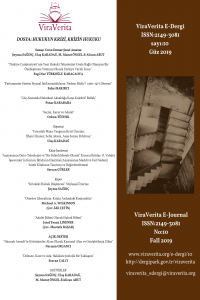Abstract
Avrupa Birliği’nin anayasal krizinin ardında, siyaseten otoriter yönetim biçimlerinin ekonomik liberalizmin maddi düzenini korumak için ortaya çıkardığı “otoriter liberalizm” konjonktürü yatmaktadır. Bu anayasal konjonktür, kısa süre önce Wolfgang Streeck’in kuramsallaştırdığı üzere, demokrasi ile kapitalizm arasındaki maddi dinamiğin anayasaya dair bir soruşturmaya katılmasıyla kavranabilir. Böylece otoriter liberalizm, liberal anayasalcılığın iki savaş arasındaki dönemdeki çöküşünden, savaş-sonrası ve Maastricht-sonrası yeniden inşasına kadar (ki her iki dönemde de ekonominin demokrasiden uzaklaşmasıyla nitelenir) çok daha derin ve uzun bir anayasal yörünge boyunca incelenebilir. Bu bakış açısından, Avro-krizinde [Euro-Crisis] demokrasiye yönelik son zamanlardaki saldırılar, entegrasyonun olağan izleğinden sapma değil, bunun bir devamı olarak belirir. Bunun nereye varacağı ise henüz belli değil. Otoriter liberalizme, otoriter illiberal tepkiler giderek daha sık eşlik etse de Brexit haricinde henüz kesin bir kopma yaşanmadı.
Keywords
References
- -------
Abstract
Behind the constitutional crisis of the European Union lies the conjuncture of ‘authoritarian
liberalism’, when politically authoritarian forms of governing emerge to protect the material order
of economic liberalism. This constitutional conjuncture can be grasped by integrating into
constitutional enquiry the material dynamic between democracy and capitalism, as recently
theorised by Wolfgang Streeck. Authoritarian liberalism can then be explored across a much
deeper and longer constitutional trajectory, from the interwar breakdown of liberal
constitutionalism, to its post-war and post-Maastricht reconstruction, in each case represented by
a de-democratisation of the economy. From this perspective, the recent assaults on democracy in
the Euro-crisis appear to be a continuation of, rather than divergence from, the normal path of
integration. Where this will end remains to be seen. Although authoritarian liberalism is
increasingly accompanied by authoritarian illiberal responses, there has not yet been any
definitive rupture, with the possible exception of Brexit.
References
- -------
Details
| Primary Language | Turkish |
|---|---|
| Journal Section | Çeviri |
| Translators |
İdil Çetin This is me |
| Publication Date | December 20, 2019 |
| Submission Date | December 10, 2019 |
| Published in Issue | Year 2019 Issue: 10 |


